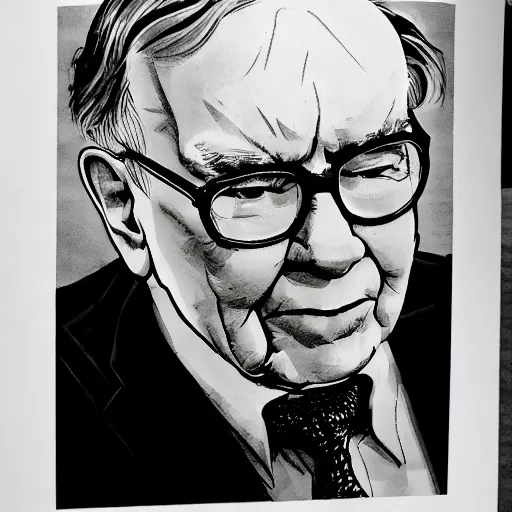
We delve into the operations of Berkshire Hathaway's insurance subsidiaries, examining their role in the global insurance and reinsurance markets. We also discuss the implications of the Terrorism Risk Insurance Act of 2002 and its impact on these subsidiaries and the broader insurance industry.
The article is based on Berkshire Hathaway's 2022 annual report.
Introduction to Berkshire Hathaway's Insurance Subsidiaries
Berkshire Hathaway conducts its insurance and reinsurance business through a multitude of domestic and foreign-based subsidiaries. These subsidiaries offer insurance and reinsurance of property and casualty risks and reinsurance of life and health risks worldwide. At the end of 2022, Berkshire Hathaway's insurance subsidiaries employed about 50,000 people, demonstrating the scale of the company's insurance operations.
Financial Strength and Ratings
The combined statutory surplus of Berkshire's U.S.-based insurers amounted to approximately $272 billion at December 31, 2022. This strong financial position underscores the company's ability to manage risks and absorb potential losses. Berkshire's major insurance subsidiaries are rated AA+ by Standard & Poor's and A++ (superior) by A.M. Best, further attesting to their financial stability and reliability in the market.
Historical Context and Development
Over the years, Berkshire Hathaway has strategically expanded its insurance operations through acquisitions and organic growth. The company's insurance business has its roots in the 1967 acquisition of National Indemnity Company and National Fire & Marine Insurance Company. The insurance division has since grown to become a cornerstone of Berkshire Hathaway's diverse portfolio, with the 1996 acquisition of GEICO being a key milestone in its history.
Role in the Global Insurance Market
Berkshire Hathaway's insurance subsidiaries have a significant presence in the global insurance market. They play an essential role in providing insurance and reinsurance coverage to individuals, businesses, and other insurers. Their ability to assume substantial risks and maintain financial strength has made them a trusted partner for clients worldwide.
In the next sections, we will dive deeper into the basics of insurance and reinsurance, explore each of Berkshire Hathaway's major insurance subsidiaries, and discuss the Terrorism Risk Insurance Act of 2002 and its impact on the company's insurance operations. Finally, we will provide a conclusion and outlook for Berkshire Hathaway's insurance subsidiaries.
Insurance and Reinsurance: Understanding the Basics
To better understand the operations of Berkshire Hathaway's insurance subsidiaries, it is crucial to first comprehend the fundamentals of insurance and reinsurance.
Direct or Primary Insurance Activities
In direct or primary insurance activities, the insurer assumes the risk of loss from persons or organizations directly subject to the risks. This type of insurance typically involves policies such as home, auto, life, and health insurance. The primary insurer's role is to evaluate, price, and underwrite these risks and provide policyholders with coverage in exchange for premiums.
Reinsurance Activities
Reinsurance involves the transfer of insurance risk from one insurer to another. In reinsurance activities, the reinsurer assumes defined portions of risks that other direct insurers or reinsurers assumed in their own insuring activities. This practice enables insurers to spread their risks and maintain financial stability, as the reinsurer shares the responsibility for potential losses.
Types of Reinsurance Contracts
Reinsurance contracts are generally classified as treaty or facultative contracts and as quota-share or excess.
- Treaty reinsurance is an agreement between a reinsurer and an insurer that covers a specified portion of the insurer's entire book of business or a specific class of risks. This type of reinsurance is automatic and applies to all risks that fall within the scope of the treaty.
- Facultative reinsurance involves the reinsurer evaluating and underwriting each risk individually. This type of reinsurance is negotiated on a case-by-case basis, and the reinsurer has the option to accept or decline the risk.
- Quota-share reinsurance is an arrangement in which the reinsurer assumes a fixed percentage of the insurer's risks and premiums. Both the insurer and the reinsurer share in the profits and losses proportionately.
- Excess reinsurance provides coverage to the insurer for losses that exceed a specified limit. This arrangement protects the insurer against catastrophic events or unusually large losses.
Regulatory Oversight
Insurance and reinsurance are generally subject to regulatory oversight throughout the world. Regulators monitor the financial stability and solvency of insurers and reinsurers to ensure that they can fulfill their obligations to policyholders. Regulations may also dictate licensing requirements, reporting standards, and consumer protection measures.
With a foundational understanding of insurance and reinsurance in place, we will now explore Berkshire Hathaway's major insurance subsidiaries and their respective roles in the insurance market.
Berkshire Hathaway's Insurance Subsidiaries
In this section, we will provide an overview of Berkshire Hathaway's insurance subsidiaries, highlighting their primary business focus and contributions to the company's insurance operations.
GEICO
With 38,285 employees, GEICO is one of the largest auto insurance providers in the United States. The company specializes in providing affordable, direct-to-consumer personal auto insurance policies. Over the years, GEICO has expanded its product offerings to include homeowners, renters, and other types of insurance.
Berkshire Hathaway Reinsurance Group
Employing 658 people, the Berkshire Hathaway Reinsurance Group (BHRG) serves as a major global reinsurer. BHRG offers property and casualty reinsurance, as well as life and health reinsurance solutions to insurers around the world. The group's expertise and financial strength enable it to assume large and complex risks.
General Re
With 2,101 employees, General Re, also known as Gen Re, is one of the world's leading reinsurers. The company offers property and casualty reinsurance, as well as life and health reinsurance solutions to clients globally. Gen Re has a strong focus on underwriting discipline and long-term partnerships with its clients.
Berkshire Hathaway Homestate Companies
The Berkshire Hathaway Homestate Companies (BHHC) comprise a group of regional property and casualty insurance providers employing 1,157 people. BHHC focuses on workers' compensation, commercial auto, and other commercial insurance products, serving a diverse range of industries and businesses.
Berkshire Hathaway Specialty
Berkshire Hathaway Specialty Insurance (BHSI) employs 1,427 people and offers a wide range of commercial property, casualty, and specialty insurance products. BHSI serves clients in industries such as construction, energy, healthcare, and transportation, among others.
Berkshire Hathaway GUARD Insurance Companies
With a workforce of 1,082, Berkshire Hathaway GUARD Insurance Companies provide a variety of insurance products, including workers' compensation, commercial auto, business owners' policies, and professional liability insurance. The company caters to small and mid-sized businesses across multiple industries.
MedPro Group Inc.
MedPro Group Inc. employs 1,201 people and specializes in medical malpractice insurance. The company offers a comprehensive suite of insurance products and risk management solutions for healthcare professionals and organizations, helping them navigate the complex healthcare landscape.
MLMIC Insurance Companies
With 247 employees, MLMIC Insurance Companies focus on medical professional liability insurance in New York. The company serves a diverse range of healthcare providers, including physicians, dentists, hospitals, and other medical facilities.
National Indemnity Primary Group
National Indemnity Primary Group consists of several insurance companies that together employ 1,263 people. The group offers a range of specialty insurance products, including commercial auto, general liability, and property insurance.
United States Liability Insurance Companies
Employing 1,089 people, United States Liability Insurance Companies (USLI) provide a variety of specialty insurance products, including professional liability, directors and officers liability, and employment practices liability insurance. USLI primarily serves small and medium-sized businesses.
Alleghany
Alleghany is a property and casualty insurance and reinsurance provider that employs 1,399 people in its insurance part. The company offers a diverse range of insurance products and services through its various subsidiaries, including TransRe, RSUI Group, and CapSpecialty.
Central States Indemnity
Central States Indemnity (CSI), with a workforce of 21, specializes in credit-related insurance products, such as credit card and mortgage payment protection. CSI serves financial institutions, retailers, and other businesses across the United States.
These Berkshire Hathaway insurance subsidiaries collectively contribute to the company's robust insurance operations, offering a diverse range of products and services to clients worldwide. Their strong financial positions and underwriting discipline enable them to effectively manage risks and maintain the trust of policyholders.
In the next section, we will discuss the Terrorism Risk Insurance Act of 2002 and its impact on Berkshire Hathaway's insurance subsidiaries and the broader insurance industry.
The Terrorism Risk Insurance Act of 2002 and its Impact on Berkshire Hathaway's Insurance Subsidiaries
In the aftermath of the September 11, 2001, terrorist attacks, the U.S. government enacted the Terrorism Risk Insurance Act (TRIA) in 2002. The primary objective of TRIA is to provide a federal backstop for insured terrorism losses, ensuring that the insurance industry can continue to offer terrorism coverage and maintain financial stability.
Key Provisions of TRIA
TRIA requires insurers to make terrorism coverage available and provide policyholders with clear and conspicuous notice of the amount of premium charged for this coverage. The act also outlines the federal share of any insured losses resulting from an act of terrorism. Coverage under TRIA is triggered if the industry's insured loss for certified events exceeds $200 million in any calendar year.
Impact on Berkshire Hathaway's Insurance Subsidiaries
The enactment of TRIA has had a significant impact on Berkshire Hathaway's insurance subsidiaries, as well as the broader insurance industry. The federal backstop provided by TRIA has allowed insurers, including Berkshire Hathaway's subsidiaries, to offer terrorism coverage without bearing the full financial burden of potential losses.
The availability of terrorism coverage has become increasingly important for businesses, particularly those operating in high-risk sectors or locations. Berkshire Hathaway's insurance subsidiaries, which offer a variety of commercial property and casualty insurance products, play a crucial role in providing this coverage to clients. The federal support provided by TRIA has enabled these subsidiaries to offer terrorism coverage at a reasonable cost while maintaining their financial stability.
By offering terrorism coverage, Berkshire Hathaway's insurance subsidiaries contribute to the economic resilience of businesses and communities affected by acts of terrorism. This coverage helps policyholders manage the financial consequences of such events and supports the broader economy by facilitating recovery and rebuilding efforts.
In conclusion, TRIA has had a profound impact on the insurance industry, including Berkshire Hathaway's insurance subsidiaries. By providing a federal backstop for insured terrorism losses, TRIA enables insurers to offer terrorism coverage and maintain financial stability, ultimately benefiting policyholders and the economy as a whole.
Conclusion: Berkshire Hathaway's Insurance Subsidiaries in 2023
As of 2023, Berkshire Hathaway's insurance subsidiaries continue to play a significant role in the global insurance and reinsurance markets. These subsidiaries, including GEICO, General Re, Berkshire Hathaway Reinsurance Group, and others, provide a diverse range of insurance products and services to clients worldwide. Employing around 50,000 people at the end of 2022, these companies are essential to Berkshire Hathaway's overall operations.
The combined statutory surplus of Berkshire's U.S.-based insurers amounted to approximately $272 billion at December 31, 2022. This strong financial position enables Berkshire Hathaway's insurance subsidiaries to effectively manage risks, maintain the trust of policyholders, and weather economic uncertainties. Moreover, the insurance subsidiaries' ratings of AA+ by Standard & Poor's and A++ (superior) by A.M. Best further attest to their financial strength and stability.
Berkshire Hathaway's insurance subsidiaries have also been influenced by significant industry developments, such as the Terrorism Risk Insurance Act of 2002. This federal backstop for insured terrorism losses has allowed Berkshire Hathaway's insurance subsidiaries to offer terrorism coverage, thereby contributing to the economic resilience of businesses and communities affected by acts of terrorism.
In conclusion, Berkshire Hathaway's insurance subsidiaries remain vital components of the company's overall business strategy. As the global insurance landscape continues to evolve, these subsidiaries will likely adapt and grow, further solidifying Berkshire Hathaway's position as a dominant player in the insurance and reinsurance markets.
PS.: the float generated by its insurance subsidiaries is vital to Berkshire's operation in the investment landscape. Check out Riding the $164 Billion Float Wave: Berkshire Hathaway's Insurance Prowess Amplified by Alleghany Corporation Deal for more details on the involved mechanics.











